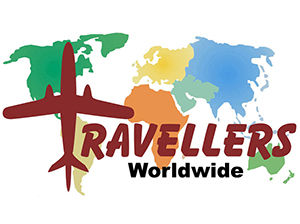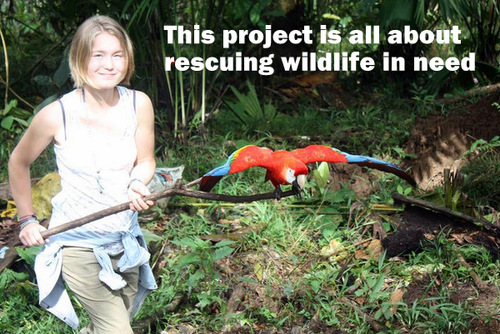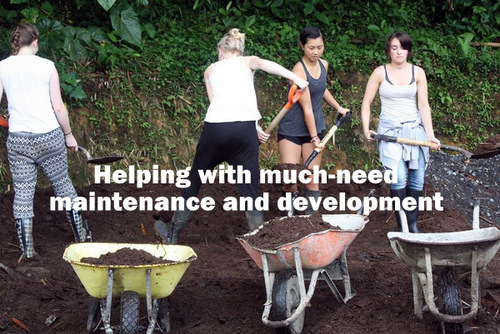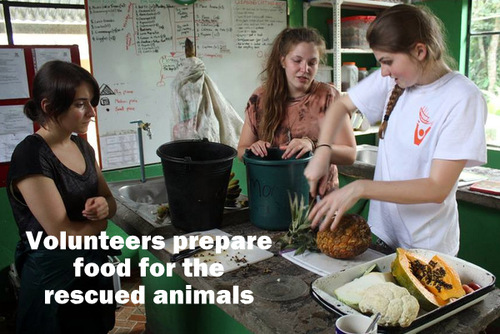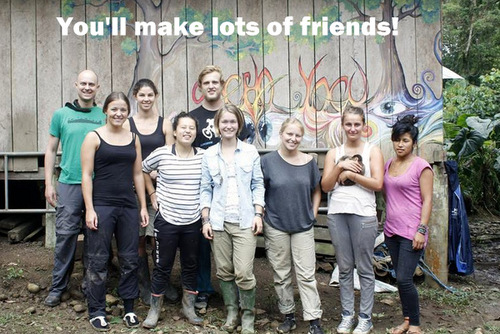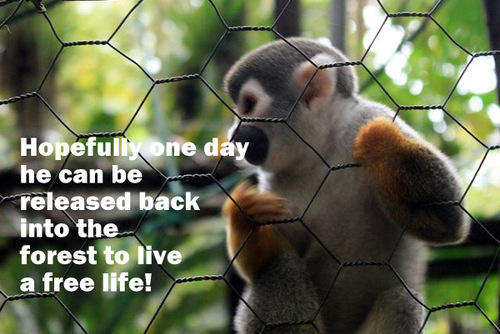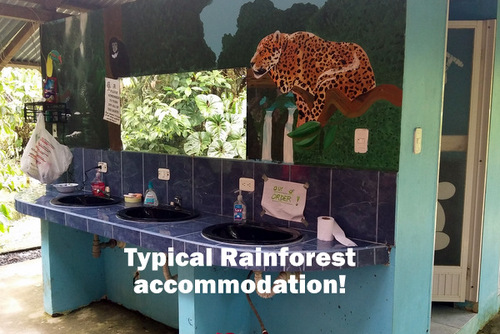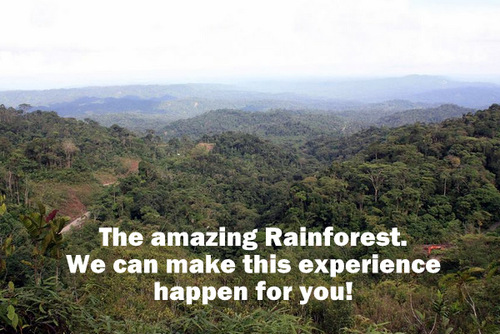This Rescue and Rehabilitation Centre was founded in 2006. Some of the animals at the Rescue Centre are orphans because their parents were killed by hunters, others were rescued from animal dealers, and others were rescued from people who kept them in small cages!
Unfortunately, the majority have suffered some sort of physical or psychological abuse. Some of the animals have been handed over to the care of the centre by Government authorities who have rescued or taken custody of the animals; others were voluntarily handed into the Centre by those families who realised that wild animals are not to be kept as domestic pets.
There are currently at least 40 different species of animals at the centre which include: Ocelot, tayra, capibara, parrots, monkeys, tortoises, and caimans amongst others.
YOUR WORK AND VOLUNTEERING ACTIVITIES:
Your help will be gratefully appreciated in some or all of the following activities:
- The day-to-day care of the animals
- Preparing food for the animals, including cutting up fruit, etc.
- Helping to feed the animals
- Helping new arrivals adjust to the Centre
- General maintenance and cleaning of the Centre and its surrounds
- Construction work; repairing and building new enclosures which will help to raise4 the quality of life of the animals
- Cage and enclosure enrichment, again a vital part of raising the quality of life for the animals.
- Assisting the vet when necessary
- Other activities such as gardening, improving trails, making signs that will guide and educate the visitors.
SAMPLE WORK SCHEDULE:
You'll work from 8am to 1pm and 2.30pm to 5pm, Monday to Friday. On Saturdays or Sundays, volunteers work for a few hours in the morning because the animals still need feeding and looking after, but once all the tasks are completed, you are free for the weekend.
The Rescue Centre is also open for tourists to visit. They are charged a small fee for entry and these charges are the Centre’s main source of income. As animal welfare is not a high priority for many Ecuadorians, the background and mistreatment of each animal is explained to tourists, with the idea being to educate local and foreign visitors about animal protection issues. In general the visits are not guided, but tourists can read about each animal at the information sign at the cages.
ACCOMMODATION
There is a volunteer house with dorm rooms offering space for up to 14 people in total. There is a shared kitchen, bathroom and social area with TV and DVD player, hammocks and books. You will be provided with bedding and will also have access to a swimming pool.
FOOD: You'll be provided with three meals per day on Mondays to Fridays only – they will consist of local ingredients and cooking. At the weekends you will need to cater for yourself. You can buy ingredients at the supermarkets in Puyo and use the kitchen facilities to prepare your own meals, or you can eat out.
WHAT TO DO NEXT:
If you’d like more information about this or any of our projects, please email or call us! If you’d like to apply for this project, please complete the application form. As soon as we receive it, we’ll liaise with you and then start making your travel adventure happen.

